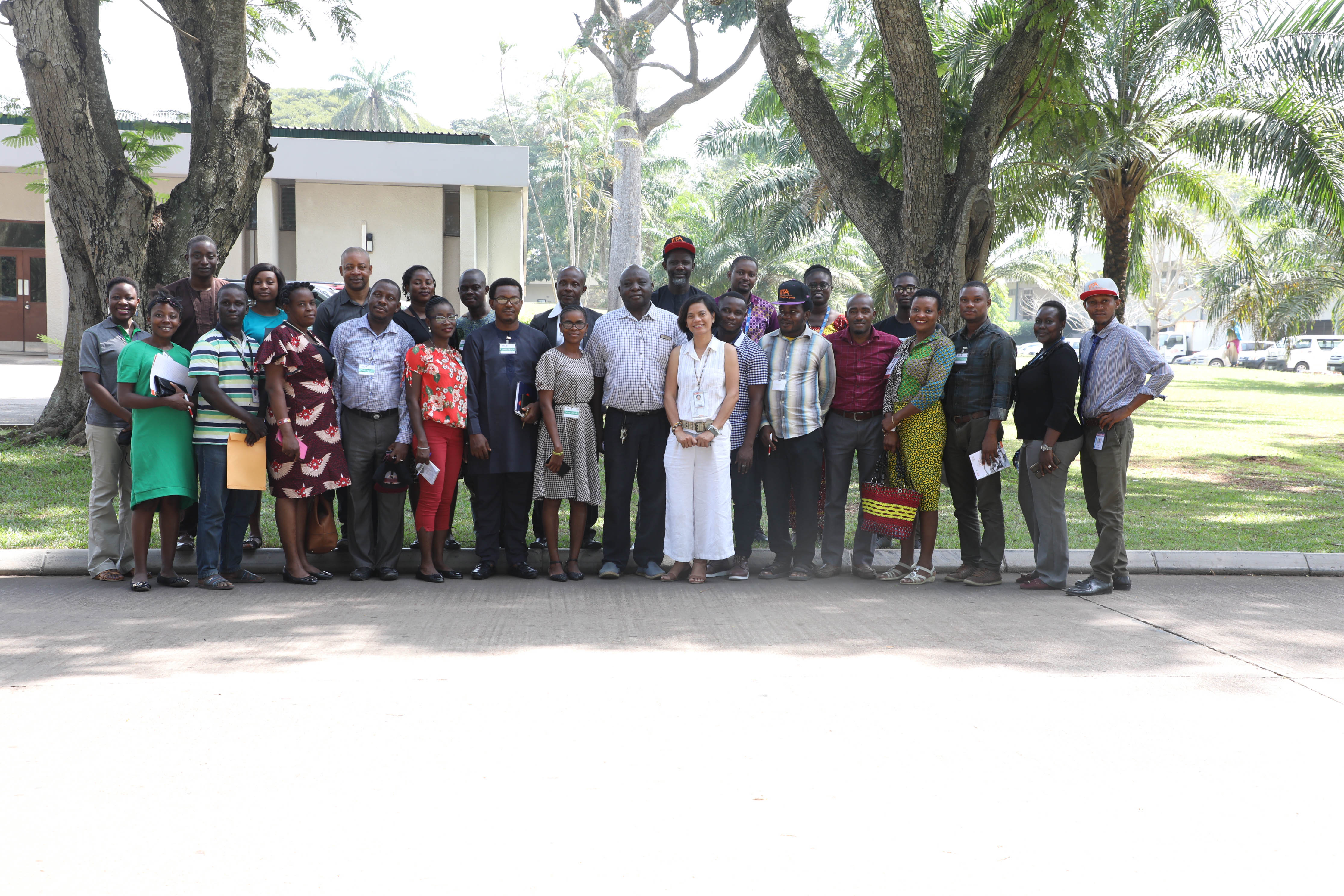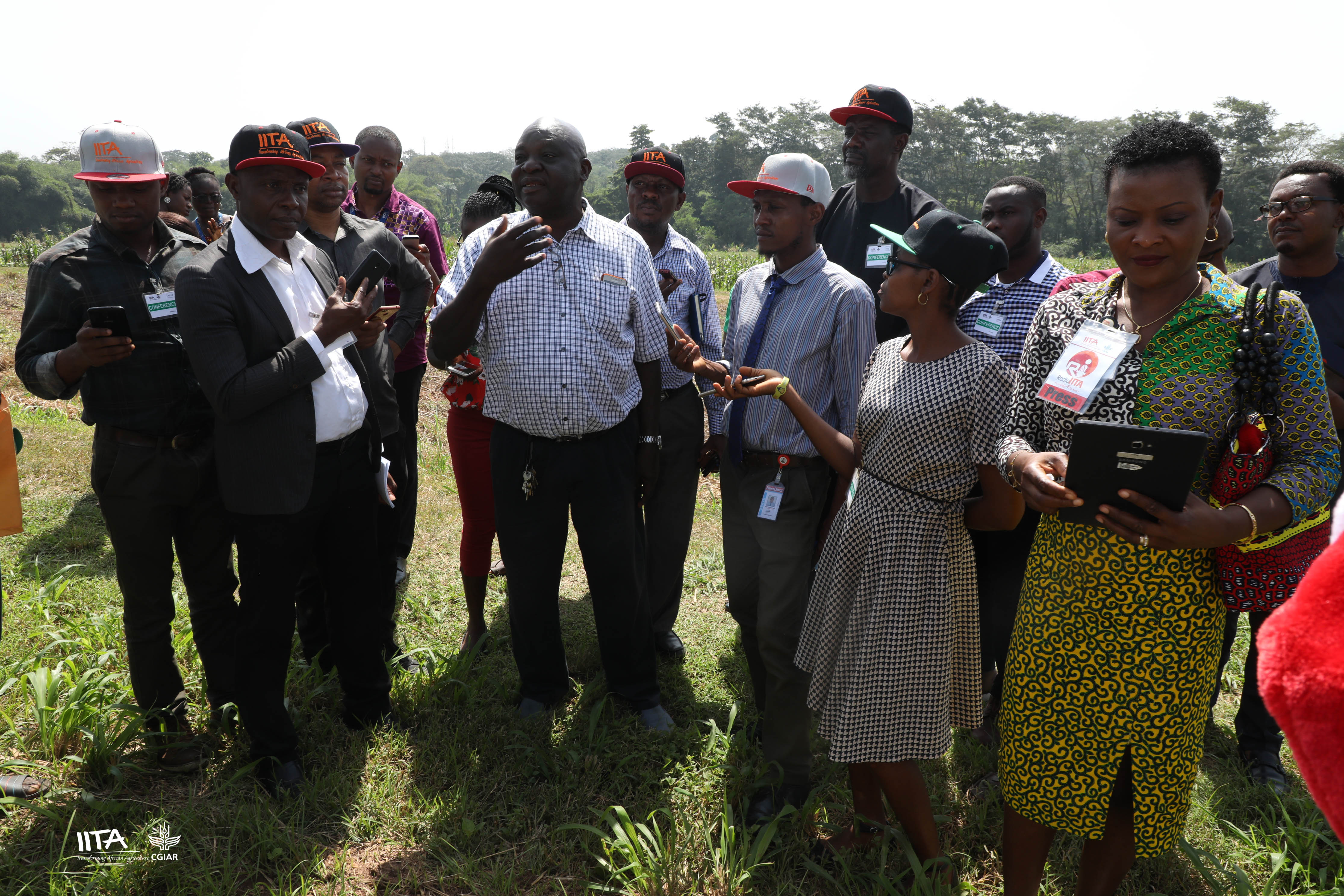IITA: Putting 2020 UN International Year of Plant Health on the agenda
Last week, the International Institute of Tropical Agriculture (IITA) launched a campaign on 2020 as the UN International Year of Plant Health (IYPH), aimed at raising public awareness about the importance of plant health research in ending hunger and reducing poverty in Africa

Plants are regarded as the bedrock of life on earth: they constitute about 80% of the food human beings consume and produce 98% of the oxygen we breathe in. They also absorb the carbon dioxide humans breathe out. Carbon dioxide is the chief culprit responsible for rising atmospheric temperatures leading to climate change. However, many plants are faced with constant and increasing threats from pests and diseases. Moreover, according to the UN Food and Agriculture Organization (FAO), about 40% of global food crops are lost to plant pests and diseases, annually.
Consequently, this leads to agricultural trade losses of about 220 billion US dollars. Although plants play a critically-important role in the terrestrial ecosystem as well as human survival and livelihood; pests continue to cause severe damages to plants and consequently agricultural productivity. Agriculture being the primary source of livelihood for most rural poor, millions of whom are left in hunger and poverty across Africa.
Unfortunately, this obvious threat to plants is often ignored thus plant health seldom come up during global discussions on food security. It was on this premise that FAO declared the year 2020 as the UN`s International Year of Plant Health (IYPH), aimed at raising awareness – at global, regional, and country levels – on the importance of healthy plants in ending hunger, reducing poverty, protecting the environment and biodiversity, as well as boosting economic development.
Consequently, the International Institute of Tropical Agriculture (IITA), last week, hosted about 40 journalists from across Nigeria, to a one-day media parley under the theme: “A Day with the Media,” aimed at promoting the understanding of IYPH 2020, and also highlighting IITA`s over half a century of research on plant health and diseases. Founded by the Rockefeller Foundation in 1967, IITA is a not-for-profit organization headquartered in Ibadan, Nigeria. It seeks to provide agricultural solutions to hunger, poverty, and natural resource degradation in sub-Saharan Africa through agricultural research for development (AR4D).
“The IYPH 2020 provides a good opportunity for institutions such as IITA to showcase their research works on plant health. For the past 5 decades, our work has been focused on plant health management, with IITA making landmark contributions in tackling plant health diseases in Africa including the first biocontrol of cassava mealybug in Nigeria,” said Kathy Lopez, head of communications at IITA.
The Institute works with local and international partners at its various research hubs and stations spread across West, East, Central, and Southern Africa, to improve livelihoods; enhance food and nutrition security; as well as provide employment opportunities for youth on the continent. Its objective is to lift about 11.5 million people out of poverty and revitalize 7.5 million hectares of land on the continent by 2020. In 2018, IITA emerged winner of the prestigious Africa Food Prize – thanks to its 50-year contribution to the improvement of plant health across Africa.
While addressing journalists at the parley, Dr. Maria Ayodele, a plant pathologist at IITA cum member of the 2020 UN IYPH Task Force team, lamented that pest attacks were responsible for low crop yields in many developing countries of the world yet, the role of plant health in crop productivity and food security is often neglected. “The idea of food security is beyond just having physical food – it is also about access to food. Food security exists when all people at all times have access to sufficient, safe, and nutritious food to meet their dietary needs and food preferences for an active healthy life. Hence, improved productivity is vital to reducing rural poverty and increasing food security,” he said.
In 2016, Fall Armyworm, a fast spreading, crop-munching pest native to tropical and sub-tropical regions of the Americas was detected in Nigeria; it has since then spread across sub-Saharan Africa causing significant damages to crops, particularly maize, cotton, rice, and sorghum. The FAO has long recognized the negative consequences of Fall Armyworm on plants; hence it has been coordinating global efforts aimed at managing the pest and curbing its spread through the use of innovative technologies for monitoring and early warning as well as equipping governments and farmers with the best tools and knowledge to fight the pest.

Correspondingly, since 2016, researchers at IITA have been working to develop maize plant varieties that are resistance to the ravenous Fall Armyworm. Sam Ajala, a maize breeder at IITA said many farmers in sub-Saharan Africa couldn’t afford pesticides and chemicals on their farms considering the high cost of the commodities. “Pesticides are expensive which can increase the cost of production for farmers; for you to have effective control of the pests you have to spray the farm several times,” said Ajala while speaking to journalists on a demonstration farm within the IITA headquarters.
“When the Fall Armyworms first invaded Nigeria, we didn`t know what it was. So, we collected some samples and sent them to our biocontrol facility in Cotonou, Benin Republic, where it was correctly identified by our scientists as Fall Armyworm. Afterwards, as scientists we thought: how can we develop maize that is resistant to Fall Armyworm? Consequently, we are exploring ‘host-plant resistance’ to breed maize varieties that are resistant to the pest,” Ajala explained.
IYPH 2020 aims to raise awareness about the importance of healthy plants in achieving the 2030 UN Sustainable Development Goals (SDGs) 1 and 2: Zero Poverty and No Hunger, respectively. It highlights the impact of plant health on food security worldwide and emphasizes the need for prevention and protection of plants as well as the role of individuals, governments, and organizations in promoting plant health around the world.
“We want the world to know that healthy plants are important to human life. Why are plants important to us? Plants produce the oxygen we breathe; they provide us with food and also feed for animals and livestock. Hence, we survive because there are plants. Thus, we must pay attention to plant health. Healthy plants lead to healthy human beings,” said Patricia Nanteza, a science writer at IITA.
With an ever growing global population, more than ever, there is now an urgent need for sufficient and sustainable food supply so as to eliminate hunger and achieve food security. But achieving food security will remain an impossible task for many developing countries faced with invasive pests such as Fall Armyworm. Thus, the work of agricultural research institutions such as the IITA in the area of agricultural research for development (AR4D) will serve as a panacea against pests and insects that continue to destroy food crops and other natural resources, which is critical for achieving long-term food security in Africa.












